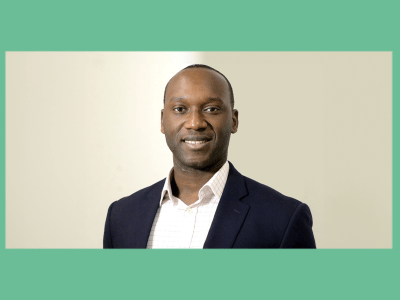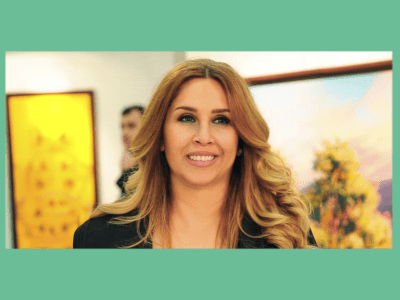“Every one of us needs to be a change agent.” – Joanne Lipman, Author and Former Editor-in-Chief of USA Today
Writer and journalist Joanne Lipman has plenty to say about communicating in the workplace. After all, she wrote the number-one best-selling book on improving communication between male- and female-identified people in the workplace, That’s What She Said. As the former editor-in-chief of news magazine USA Today and a contributor at both the Wall Street Journal and CNBC, Lipman has plenty of experience with both workplace politics and effective communication. She sat down to share her insights with EU Business School students and Peter Vanham, author of “Before I Was CEO.”

Gender Inequality in the Workplace: Effects of the Pandemic and Double Standards
When asked how the COVID-19 pandemic has affected women, Lipman was candid and direct. “All the data shows that women have been affected so much more adversely economically—not in terms of health, but economically.” She pointed out that while the workforce was majority female a year before the interview, the unique pressures of the pandemic quickly changed that. “By August [2020], something like over 2 million women had actually dropped out altogether because of the impossible demands of handling work at home with no childcare…or your kids aren’t in school, and you have to do the schooling as well, which has fallen disproportionately on women… if you look at the unemployment figures for December [2020], they were 100% attributed to women.” Lipman went on to identify this as an inherent flaw in the system. “It’s institutionalized inequality…is it getting enough attention? No! Absolutely not! This should be in the headlines every single day.”
But it’s not news that the pandemic only highlighted existing issues often faced by women in the workplace. Double standards based on gender lines have long been a topic of discussion among experts, and Lipman gave clear statements about how leadership and work culture have failed women. “There’s a lot of research that shows that men who talk about their own achievements—we think better of them. When women do the same, we penalize them. We say they’re pushy and abrasive and obnoxious, and it hurts their careers. Men who talk more than women, we say that they’re smarter. When women talk more, we think less of them.” Lipman places some of the responsibility for these perceptions on business leaders, saying that it is up to them to recognize and break these patterns.
But Lipman was clear that it isn’t only the responsibility of those in leadership roles to ensure all voices are heard equally. “Those of us who are not in leadership can also do something by listening for…the person [in a meeting] who is being interrupted… and calling it out. So, if Susan gets cut off in a meeting, anyone in that meeting should listen for it and say, ‘wait a second, Susan was speaking. I’d like to hear her finish.’”
Respect in the Workplace: Being an Agent for Change
One surprising aspect of writing her book was that challenges Lipman thought were unique to her are shared by many women. This realization was alarming, but also helped her see that she was not alone. Issues she thought were the result of her management were actually rooted in institutionalized sexism. Lipman cited a personal example from her first editing job, where a male direct report refused to take direction. At the time, Lipman believed this was due to a weakness in her management style, but through her research realized that this sort of situation was common. “If you put a woman and a man in the same job, the woman doesn’t get the same level of respect as the man does. And she is not seen as important as the man is in the same job. Once I understood that there’s a gender dynamic going on here, it actually helped me to understand how to manage the situation.”
A student asked if the higher level of scrutiny placed on sexism in the workplace has brought about any change, and Lipman was quick to affirm this, saying that she has seen encouraging and positive effects. “Until COVID hit, I was on the road almost constantly working with companies that are really trying to move the ball forward… one of the most encouraging, right before lockdown, was at an oil company in Texas. One of the most macho industries and one of the most macho states in one of the most macho companies that you can possibly imagine. And it was an audience of about seven or eight hundred men…who just wanted to be part of the solution. I don’t think you would have that seen that even five years ago, so the fact that we have this greater awareness and that men are more interested in helping is great.”
In response to another student’s query about why corporate social responsibility initiatives often overlook gender disparities, Lipman suggested that keeping better track of gender equality in a way that accumulates data could be a useful measure. “LeanIn.org and McKinsey did this research and found that at the first step of promotion, for every hundred men who get promoted, only seventy women are…and so companies and organizations that want to get back to gender equity, start with your entry level, keep track of that data all the way up, and we could fix this problem pretty soon.”
The Power-and Ethics-of Asking Questions
As a rookie journalist, Lipman wasn’t afraid to ask as many questions as she needed to understand something. This characteristic helped her get her first internship and, ultimately, her first step in the world of journalism.
Companies aren’t always forthcoming with what goes on behind the scenes, a lesson other reporters learned the hard way through cases like those of Enron and Theranos. “People were just astonished by the way [Elizabeth Holmes] could talk, and the way that she was so charismatic, and the promises she made, and as a result people were not looking underneath to say ‘Wait a second, I don’t understand how your business works’…and when a reporter [John Carreyrou of the Wall Street Journal] finally did, it turned out that the company was a fraud. Same thing with Enron. And that was a result of people really…being too cowed to say, ‘I don’t understand, please explain.’”
It could be said, then, that company leaders have an ethical obligation to ask questions about discrimination and poor practice, and not just accept that everything is fine based on appearances. This ties in with what Lipman stated about identifying marginalized or stymied individuals and encouraging them to put themselves forward. It also addresses the soft skills Lipman identified as valuable in leaders: humility, curiosity, passion, and the ability to listen.
Final Thoughts on Change and Reinvention
Can companies truly brook this level of change and is reinvention possible? Lipman has a positive outlook, stating that her research shows a common process of feeling lost or stuck in a liminal state before having a breakthrough. “I think it’s uncomfortable—I tell you; it is not fun—but it’s really important and gets you to the other side.”
“Every one of us… needs to be aware of the issues that women or underrepresented people…are facing, and every one of us needs to be a change agent. And every one of us can do that…by just being aware of any discrimination that we see.” Lipman continued, “By doing that ourselves, I think it comes back to you. It’s a virtuous circle. You help others, they help you, and we all need to do it—men and women.”
“I have made a million mistakes,” Lipman said. “I think that every single mistake, every single painful thing that I have gone through, I come out learning something from it.” She regrets nothing about the mistakes she has made, saying that “The fact is that the person you become, you become that way at least as much because of the failures as because of the successes.” Perhaps this is a lesson that businesses can learn, too.
The EU Business School (EU) community is diverse, multicultural and open-minded, as recognized by prestigious institutions such as QS, which awarded EU four stars for internationalization and inclusiveness. We are proud that 52% of our students are women and we celebrate the achievements of female professionals in events such as our Women in Business Month. At EU, we nurture the business leaders of tomorrow by equipping our students with the knowledge, skills and values essential for the promotion of ethical business practices in which discrimination has no place. Find out more about our wide range of foundation, bachelor’s, master’s and MBA programs and become a new leader for tomorrow.










